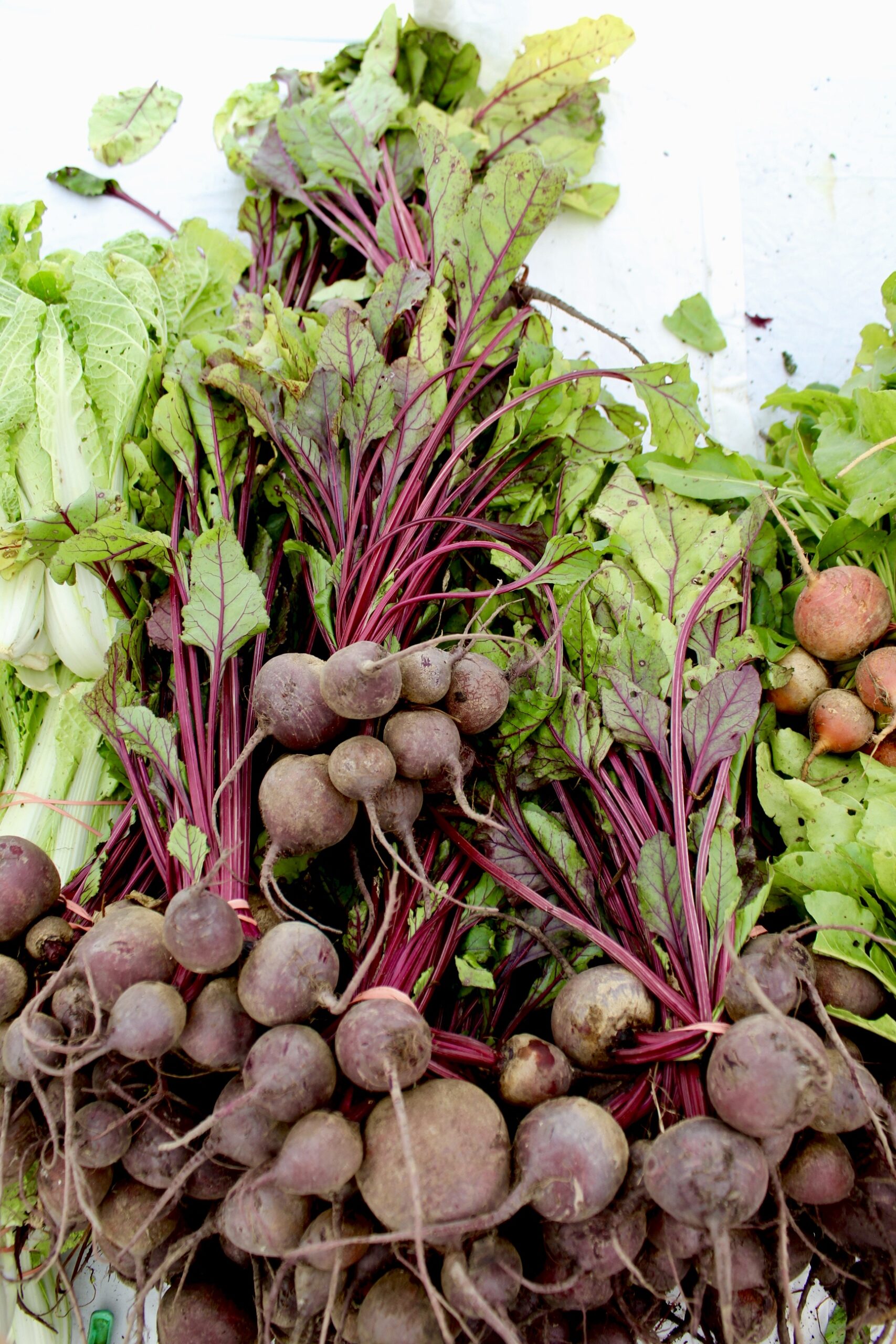Leafy Greens Series: Beet Greens
May 13, 2020
Everybody knows that you have to get your greens in every day, right? But why is that, exactly? What do greens have in them that make them such “superfoods” and such “nutrient powerhouses”?
Instead of taking everyone’s word for it, it’s about time to learn for yourself exactly what nutrients they contain and why they’re important.
Here’s the bottom line: Eating a diet that’s rich in leafy greens has numerous healthy benefits, including a reduced risk of heart disease, high blood pressure, inflammation, and even some types of cancers.
That’s why we created this blog series to highlight some of the coolest and healthiest leafy greens to highlight their benefits so that we can all learn a little bit more about how our body is affected when we eat them. Join us as we educate ourselves!
Important note: The information in this blog series is not exhaustive. Not all the foods’ nutrients and health benefits are listed here, but rather just those most prominent and distinctive; the highlights of their nutritional properties. We are not nutritionists and don’t pretend to be. All information sources are listed at the bottom of the article.
Beet Greens
You’re probably familiar with beets, but have you heard of their greens? They’re the top part of the plant, the leaves. The beet is the root. It’s a shame that most people get rid of them, as they are not only edible, but actually extremely nutritious!

Minerals
Beet greens boast an excellent source of the minerals copper, potassium, manganese, magnesium, iron, and calcium. In fact, when compared to turnip and mustard greens, beet greens top them both by providing the most amount of calcium and magnesium. Potassium is important for cell and body fluids, and helps control the heart rate and blood pressure by countering the effects of sodium in the body. Manganese helps the body to utilize a number of different antioxidants, and also helps with protein and amino acid digestion. Iron is important for delivering oxygen to the body, and calcium is essential for strong bones and teeth. Clearly, there are a lot of rewards to be reaped from beet greens and surprisingly, the greens actually have more minerals, vitamins, and fiber than the beetroot itself!
Vitamin C & A
Not only does an impressive dose of Vitamin C in beet greens help boost the immune system, but it also helps maintain healthy teeth and bones and glowing skin, as collagen depends on it. It helps prevent damage caused by sun, pollution, and smoke, and aids collagen’s ability to smooth out wrinkles and improve overall skin texture. Beet greens are also an excellent source of Vitamin A, with 100g of leaves providing 211% or the recommended daily amount! Vitamin A is essential for maintaining healthy vision, cell differentiation, and immune health, and reproduction. It also contributes to healthy skin, so it’s a win-win for skin when you eat beet greens. A diet rich in Vitamin A is also found to be helpful in protecting against lung and oral cavity cancers.
Phytonutrients
Beet greens are a good source of the phytochemical compound called glycine betaine, which has the ability of lowering homocysteine levels in the blood, especially in people with homocystinuria, which is a rare condition that inhibits the body from breaking down protein from the food you eat. Too much homocysteine in the bloodstream causes damage of the blood vessels, which results in the development of coronary heart disease, stroke, and peripheral vascular diseases.
Flavonoids
Beet greens are some of the best source of the flavonoids B-carotene, lutein, and zeaxanthin. What are flavanoids, you may ask? They are the largest group of phytonutrients, or plant chemicals, that are found in plants. Along with carotenoids, they are responsible for the vivid colors of fruits and vegetables. Beet greens are a great source of the flavonoid zeaxanthin, which provides UV light-filtering functions in the eyes and protects them from degeneration that comes with age.
As with all green leafy vegetables, Vitamin K is one of the star nutrients in beet greens, with an impressive 100g containing about 333% of the recommended daily amount.
How to Use Beet Greens
The great thing about beet greens is they’re extremely versatile. They have an earthy, tangy taste to them. It could take a while to get used to them, so we recommend chopping the leaves up finely when preparing them.
Chop them finely and add your choice of vinegar, extra virgin olive oil, salt, and ground pepper. Add on top of any dish such as steamed rice or sautéed vegetables for that extra pop of freshness and acidity to your dish.
You could also make a delicious beet green pesto using the beet leaves and blending them in a food processor. Instead of using pine nuts, try using sunflower seeds instead. They complement the flavor of the beet greens beautifully and could also add some variety to a traditional pesto recipe. Finish off with sun-dried tomatoes and squeeze of lemon.
Sautée them in a large, hot pan (tip – always sautée or pan fry your greens in a large pan so that there can be more hot surface area in contact with the greens and they won’t pile on top of each other and steam instead!).
Chop them finely and add them to a vinaigrette that you can drizzle onto anything and it’ll make it so much better – roasted cauliflower, baked potatoes, steamed green beans…
You can also add beet greens to your green smoothie in the morning (bonus points if you get the actual beet in there too).
What’s your favorite way to eat beet greens? Let us know in the comments below. Enjoy!
Sources: livescience.com, nutrition-and-you.com, ndtv.com, whfoods.com, healthline.com
be the first to comment